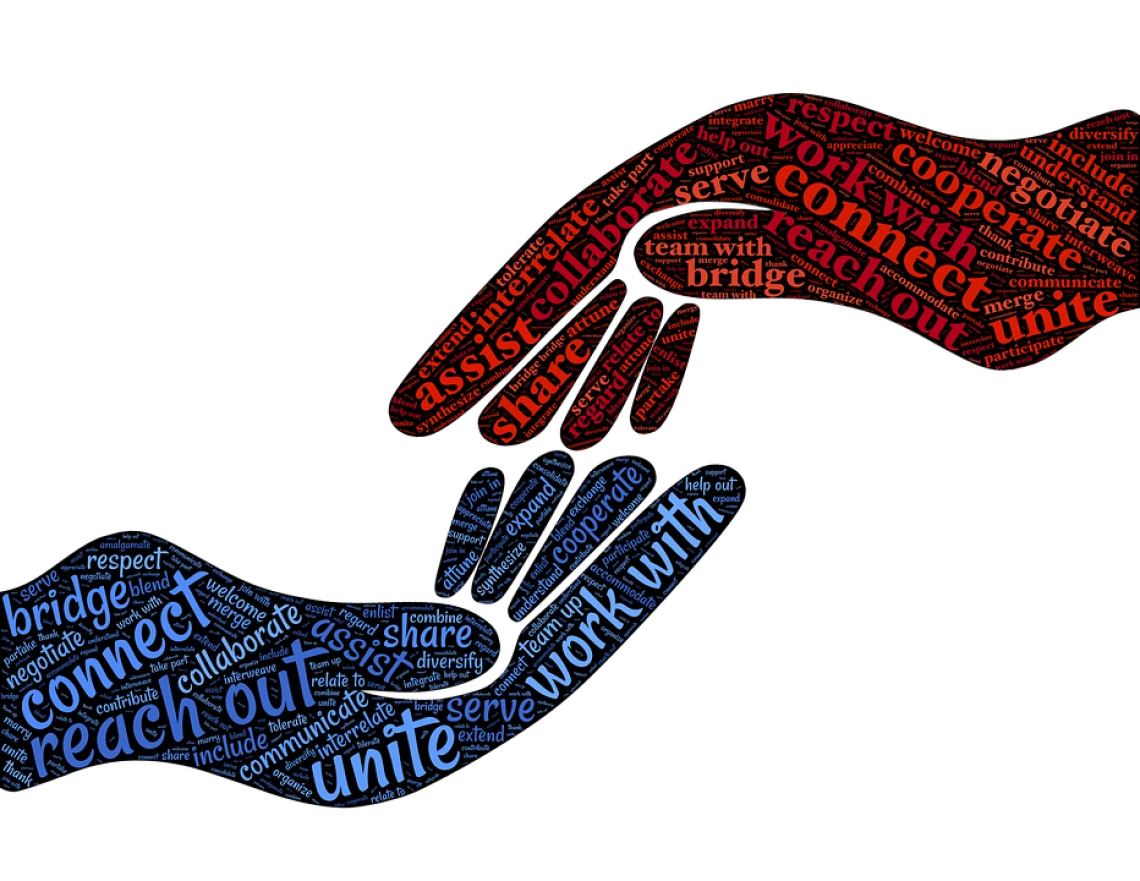Connecting Through Conferences

By Elizabeth Labiner
Professional development in graduate school is important; conferences, publications, and service are all on graduate students’ long list of areas in which to apply themselves. These aspects of academia, however, can be intimidating or even exclusionary to someone starting a career. A great way to expand your professional experience, while also building your CV, is through graduate conferences -- and for many disciplines, you won’t even have to leave campus to get started.
Graduate conferences here at the U of A vary in theme and size, but many are run by graduate students, for graduate students. Three such organizers are Emily Thomas and Daniel Kasper, co-chairs of the New Directions in Critical Theory Graduate Conference, and Adolfo Bejar, co-chair for the Graduate and Professional Symposium in Hispanic and Luso-Brazilian Language. “These conferences give new scholars and researchers the opportunity to refine their ideas with their peers. By participating, students also get a low-stakes entry point into the broader community of their chosen field,” explains Kasper. Thomas concurs, and elaborates,
Graduate student conferences are a great place to test out more experimental, nascent ideas. It can be easy to get lost in the crowd at big, professional conferences, but the smaller, more intimate setting of a graduate student conference is an excellent place to meet new people and forge lasting, professional relationships with other burgeoning scholars.
Connections can be formed at all conferences, of course, and networking is an important facet of the experience. Graduate conferences connect peers who are on equal footing with the other presenters and attendees. This can be beneficial for a number of reasons, not least of which, Kasper points out, is that “graduate conferences tend to be less fraught and less stressful. That's incredibly important for people who are new to the conferencing game.” Additionally, says Thomas, relationships with other graduate students “help stave off the loneliness of the scholarly path, and they also remind us that the work we do is not created in a vacuum.”
The connections made can be particularly helpful when they’re outside of one’s own department, a high possibility at an interdisciplinary conference such as New Directions. While specialists’ conferences are certainly important for career-building and networking, exciting possibilities can also emerge from the convergence of individuals from disparate fields. Thomas notes, “As a result of the conference's interdisciplinary bent, we attract scholars, artists, and activists from diverse backgrounds, making for lively, nuanced conversations that we hope our participants and attendees can carry with them as they venture back out into the world-at-large.”
Bejar shares Thomas’s sentiments, adding,
The first and most important feature [of an interdisciplinary conference] is having graduate students from different departments and academic backgrounds showcase their work. This will give us a sense of where we are as an academic community. The second feature—which is directly connected to the first one—is the opportunity to create networks amongst departments and students in order to create a stronger intellectual community within the university. If we consider these two features, we strive to achieve a twofold objective: exposure and interaction of different knowledges to/with each other and the strengthening of our intellectual community at the university.
In addition to participating as a presenter, graduate students can gain experience in planning and leadership roles. Bejar encourages students to consider not only presenting, but joining the planning committee for a conference in their field, which helps develop important skills: “I personally have learned a lot about logistics, managing a budget, coordinating large groups of people, delegating responsibilities, and working together to balance everybody’s interests. I also had the opportunity to create networks with other organizations and departments, which has allowed me to understand how the university works at an administrative level.”
In addition to all the aforementioned benefits, graduate conferences typically have low or even no cost associated with registration, and the many conferences here on campus will also be free of the often hefty travel expenses. Most of all, though, both Kasper and Thomas emphasize, graduate conferences are fun: “You get to spend time with people who are interested in the same things that you are, and the enthusiasm of happy academics is incredibly infectious.”
Here are just some of the UA graduate conferences posted on the Graduate Center website:
New Directions in Critical Theory (hosted by English Dept., but interdisciplinary): https://2018newdirections.weebly.com/
Arizona Graduate Conference in French: https://french.arizona.edu/graduate-conference
Graduate and Professional Symposium on Hispanic and Luso-Brazilian Literature, Language and Culture: https://spanish.arizona.edu/graduate/seminar
Southwest Graduate Conference in Middle Eastern and North African Studies: https://menas.arizona.edu/mena-conference
Arizona Writing and Social Justice Conference: https://english.arizona.edu/events/arizona-writing-and-social-justice-conference
Mathematics RTG Mini-Conference: http://math.arizona.edu/academics/grads/workshops/rtg
The Arizona Linguistics Circle Conference: https://linguistics.arizona.edu/alc_conference
UA Graduate Student Music Conference: https://uanews.arizona.edu/calendar/104726-ua-graduate-student-music-conference
SLAT Interdisciplinary Roundtable: http://slat.arizona.edu/students/slatsa/slat-interdisciplinary-roundtable/
Teaching, Learning, & Sociocultural Studies Graduate Student Colloquy: https://www.coe.arizona.edu/tls/tls_colloquy
If you host a UA graduate conference that isn’t listed here and you’d like it to be added to the Graduate Center website, please email the conference information to the author at etlabiner@email.arizona.edu.

